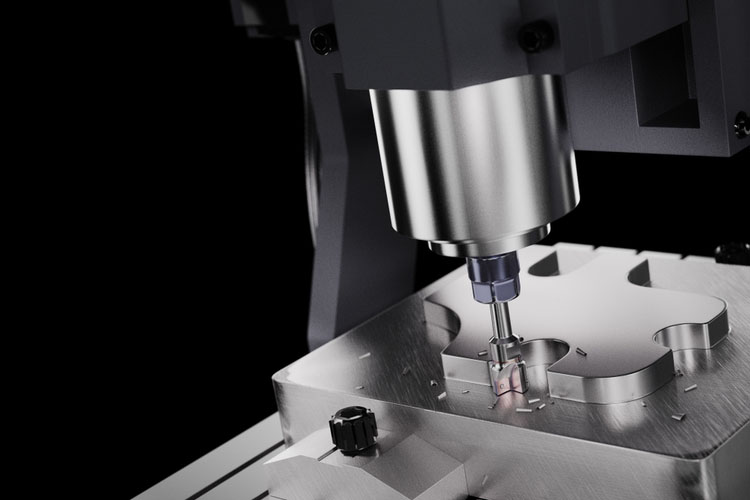If you find yourself repeatedly ordering the same parts throughout the year, you can consider signing a long-term contract with your manufacturing partner.
In the ever-evolving world of manufacturing, establishing a long-term contract can offer numerous advantages to both manufacturers and clients. These benefits span from financial stability and cost savings to improved quality control and strategic partnerships. Here are some of the key benefits of entering into a long-term manufacturing contract:
1. Cost Savings
Buyers benefit from better pricing, greater flexibility, and unparalleled consistency, while stores benefit from operational efficiency and the ability to predict cash flows several months in advance.
Assuming you need 100 parts per year, but you want to divide it into four deliveries, each delivering 25 parts with a three-month interval between each. Just convey this request to your precision machinery workshop and you will benefit from a long-term contract.
Economies of Scale:
Long-term contracts allow manufacturers to plan for larger production runs, which can reduce the per-unit cost of goods. This is due to economies of scale, where the cost of production decreases as the volume of production increases.
Stable Pricing:
Clients benefit from stable pricing over the duration of the contract, protecting them from market volatility and price increases. This allows for better budgeting and financial planning.
Improved Quality Control
Consistency:
With a long-term relationship, manufacturers can better understand the client’s quality expectations and standards, leading to consistent product quality.
There are many variables in the manufacturing process – from machining to electroplating – the more these variables are reduced, the better the consistency between parts and orders. Even if two different batches of parts comply with printing standards, some changes are inevitable, which may cause problems for buyers, especially when these parts enter complex components.
When a precision machinery factory has the opportunity to produce 100 parts in one batch instead of 25 parts in four batches, buyers will enjoy unparalleled consistency.
Greater Flexibility
When you sign a long-term contract, the precision machinery workshop will process the entire order at once, immediately ship the parts you need, and store the remaining inventory on shelves. This means that if you suddenly need to deliver a second 25 parts one month ahead of the original plan, the store can easily meet your requirements. You can get the flexibility you need without worrying about placing expensive urgent orders.
Continuous Improvement:
Ongoing contracts foster a culture of continuous improvement, where both parties work together to refine processes and enhance product quality over time.

Stronger Relationships
Collaboration:
A long-term contract encourages a closer working relationship between the client and the manufacturer. This collaboration can lead to better communication, problem-solving, and innovation.
Trust:
Over time, trust builds between both parties, leading to a more cooperative and efficient working environment.
Reduced Risk:
Clients benefit from reduced risk as they secure a reliable supply of products without the need to frequently renegotiate terms or find new suppliers.
Market Responsiveness:
With a solid partnership, manufacturers can respond more swiftly to market changes and client demands, keeping the client ahead of competitors.
Is A long-term Contract Suitable For You?
It should be noted that not all parts are suitable for contract manufacturing services. If you meet the following points, you can benefit from a long-term contract:
1. You authorize the store to process all parts at once.
Processing all parts at once enables the store to offer lower prices. Then, the store places the inventory on the shelves and ships the parts to you according to the scheduled schedule.
2. You didn’t expect the revision to change.
Due to the fact that the workshop must process all parts simultaneously, a long-term contract is ideal for established parts, while it is not suitable for parts that may undergo revisions and changes in early engineering.
3. You need a large number of parts.
The beauty of a long-term contract is that it benefits both the buyer and the store. When the number of parts is too small, the store will not benefit much from the agreement.
Conclusion
Entering into a long-term manufacturing contract can offer substantial benefits, including cost savings, improved quality control, stronger relationships, financial stability, better resource allocation, enhanced innovation, and a competitive advantage. By fostering a strategic partnership, both manufacturers and clients can achieve their business objectives more effectively and efficiently, ensuring long-term success and growth in the competitive manufacturing landscape.
If you are interested in discussing contract manufacturing services, please let us know when you request a quote. This can simply tell us, “I want to order 300 parts, but I need to ship them in 4 installments a year.” We are always willing to discuss various options with you and reach an agreement that satisfies everyone.



